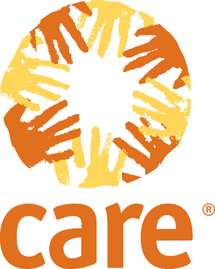
Women were brutally raped by soldiers during a crackdown on anti-government demonstrators which, according to the United Nations, left more than 150 people dead in the west African country late last month.
"We must take action now to put an end to this abuse and humiliation," Gayle said.
On September 30, the UN Security Council unanimously adopted Resolution 1888 that renewed a demand "for the complete cessation by all parties to armed conflict of all acts of sexual violence with immediate effect" and urged UN chief Ban Ki-moon to appoint a special representative to spearhead the fight.
In a letter sent to Ban Friday, Gayle urged immediate implementation of steps outlined in Resolution 1888.
"While Security Council Resolution 1888 is a step forward in the fight to end rape as a weapon of war and conflict, the time for talk is over," added the head of CARE, a leading humanitarian and anti-poverty organization headquartered in Atlanta, Georgia.
"What happened in Guinea is an exceptionally visible example of the violence and abuse threatening women all over the world. In Guinea, these rapes and killings took place in a public stadium," she noted.
And she pointed out that in other countries where CARE operates such as India, Nepal and Uganda, "sexual violence haunts women in more hidden places like homes and schools."
CARE said it was launching an online petition at www.can.care.org that will ask people worldwide to demand the immediate appointment of a UN special representative tasked with speeding up efforts to end "the cycle of violence against women and assisting survivors of rape and assault."
The rapes in Guinea are part of an international epidemic of violence against women and girls, notably in the Democratic Republic of Congo (DRC).
According to the US State Department, roughly 1,100 rapes are reported each month in DRC, with an average of 36 women and girls raped every day.
--------------------------------------------------------------------------------------------------------------------------------
"We must take action now to put an end to this abuse and humiliation," Gayle said.
On September 30, the UN Security Council unanimously adopted Resolution 1888 that renewed a demand "for the complete cessation by all parties to armed conflict of all acts of sexual violence with immediate effect" and urged UN chief Ban Ki-moon to appoint a special representative to spearhead the fight.
In a letter sent to Ban Friday, Gayle urged immediate implementation of steps outlined in Resolution 1888.
"While Security Council Resolution 1888 is a step forward in the fight to end rape as a weapon of war and conflict, the time for talk is over," added the head of CARE, a leading humanitarian and anti-poverty organization headquartered in Atlanta, Georgia.
"What happened in Guinea is an exceptionally visible example of the violence and abuse threatening women all over the world. In Guinea, these rapes and killings took place in a public stadium," she noted.
And she pointed out that in other countries where CARE operates such as India, Nepal and Uganda, "sexual violence haunts women in more hidden places like homes and schools."
CARE said it was launching an online petition at www.can.care.org that will ask people worldwide to demand the immediate appointment of a UN special representative tasked with speeding up efforts to end "the cycle of violence against women and assisting survivors of rape and assault."
The rapes in Guinea are part of an international epidemic of violence against women and girls, notably in the Democratic Republic of Congo (DRC).
According to the US State Department, roughly 1,100 rapes are reported each month in DRC, with an average of 36 women and girls raped every day.
--------------------------------------------------------------------------------------------------------------------------------









 Home
Home Politics
Politics









